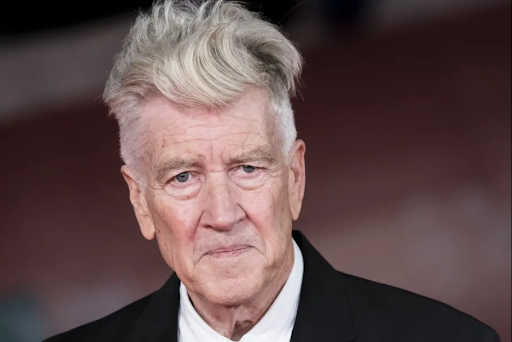Source: Variety
At what point does a filmmaker decide they are personally no longer willing to keep making films? For some, there is no point, as they’ll continue to work until the day they day, but for others, there is a desire to bring their career to an end and spend the remainder of their lives immersing themselves in the joys and luxuries (or at least those available to them) of retirement. In these cases, retirement is usually a completely voluntary option; it’s the filmmaker themselves who decides that they’ve done all that they’re willing to do and are now interested in spending the time they have left without having to contend with the pressures of their work. However, there are also instances where a filmmaker may still want to keep working, yet are forced to stop due to reasons outside of their control. Such a predicament is of course far from preferable, but there are in fact quite a few filmmakers who have had to give up their careers prematurely for a variety of reasons, whether they’re related to health, finances, family, or anything else that may force the figure in question to reconsider their priorities. Just recently, one especially noteworthy filmmaker revealed that they too have a health condition that might in fact prevent them from making any more films, and given the extensive body of work that this person has developed over the past few decades, many will no doubt be saddened by the possibility that his career may now be near its end. The filmmaker in question: the incomparable David Lynch.
If there’s any word that can be used to describe the many films directed by David Lynch, “normal” would probably not be one of them. Born in 1946 and first beginning his career as a filmmaker in 1967, Lynch made his feature-length directorial debut with 1977’s “Eraserhead”, an experimental psychological horror film that captured the attention of millions with its darkly surreal imagery and a narrative that became increasingly grotesque and disturbing as it revealed more about the inner lives of its characters. The success of “Eraserhead” would eventually lead Lynch to crafting many more films that had a similarly uncanny nature, with the likes of 1987’s “Blue Velvet” and 2001’s “Mulholland Drive”. He has been known to direct slightly more conventional cinematic fare from time to time – among such films are his 1984 adaptation of “Dune” and 1999’s “The Straight Story” – but it’s the films that are generally thought of as “weird” that tend to come to mind most frequently whenever they think of Lynch and his body of work. While his most recent theatrical release, the psychological thriller “Inland Empire”, was released all the way back in 2006, Lynch has nonetheless remained fairly active within the entertainment industry, releasing a third season of his previously two-season television series “Twin Peaks” in 2017 and even making a cameo as famed director John Ford in Steven Spielberg’s semi-autobiographical drama “The Fabelmans” in 2022. One might think that there’s little that can stop Lynch from doing what he’s best known for, but if his recent diagnosis is any indication, that might not be entirely true.
In an interview conducted with the magazine Sight & Sound, which will use the interview as the cover story for its upcoming September issue, Lynch revealed that he’d recently discovered that he has emphysema, a disease caused by the enlargement of air spaces within his lung tissues, and that such a condition puts him at high risk for COVID-19, which has made it incredibly difficult (if not entirely impossible) for him to leave his own home. “I’ve gotten emphysema from smoking for so long and so I’m homebound whether I like it or not, Lynch claims, citing a years-long smoking habit as the cause of his condition, “and now, because of COVID, it would be very bad for me to get sick, even with a cold”. According to Lynch, the disease has gotten so bad that he can longer walk any further than a very short distance without running the risk of taking in too little oxygen, so him being able to direct a film like he had in the years prior does not appear to be a feasible option any longer. With that said, there is still a possibility – albeit a very slight one – that Lynch may continue to direct, but if he does, it will have to be remotely from the safety of his own home. “I would try to do it remotely, if it comes to it,” Lynch states as he considers this option as opposed to his earlier on-set directorial efforts, although he noted soon afterwards that it wouldn’t be the most pleasant experience for him. As he himself put it rather bluntly, “I wouldn’t like that so much”.
Directing (or at least in-person directing) may no longer be an option for Lynch, but that doesn’t mean he’s ready to give up filmmaking altogether, as there are a few projects of his that he would like to get off the ground sooner than later. Further into his interview with Sight & Sound, Lynch discussed a screenplay he wrote in 2010, one titled “Antelope Don’t Run No More”, that he hopes will be turned into a proper feature film someday. He also talked about “Snootworld”, an animated feature he had been working on for roughly twenty years alongside Caroline Thompson, the screenwriter of the 1990s holiday classics “Edward Scissordhands” and “The Nightmare Before Christmas”, expressing the difficulty he’s faced in getting studios interested in what he describes as something akin to a traditional fairy tale. “Just recently, I thought someone might be interested in getting behind this, so I presented it to Netflix in the last few months, but they rejected it,” Lynch told his interviewer, further stating that “old-fashioned fairy tales are considered groaners: apparently, people don’t want to see them. It’s a different world now, and it’s easier to say no than to say yes”.
Some may find it disheartening that someone as universally acclaimed as David Lynch is no longer in a position where he can directly make his own films, while others may find frustration in the projects he does have interest in being turned down by companies who don’t share such an interest. In any case, while every filmmaker is guaranteed to reach the end of their career at some point, it’s never pleasing when it comes without the agreement of said filmmaker. It’s hard to say what will come of Lynch and his filmography in the near future, but one can only hope that he’s able to make something new even in the midst of such unfortunate circumstances.




